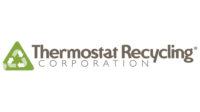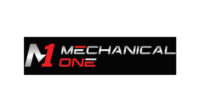Portland, Ore. — Geary Pacific Corp., a distributor of heating and air conditioning equipment, parts, and service, belonged to an industry purchasing cooperative that offered online learning to its members. Success with the co-op’s online product courses developed by manufacturers led Geary Pacific to invest in a learning management system (LMS) exclusively for Geary Pacific. Kelley’s LMS, made by BlueVolt, has 272 users who take, on average, nearly 12 courses from a catalogue of more than 200 ranging from tutorials on new products to handling customers.
“Part of our value proposition is having the subject matter expertise to deliver whatever customers ask for,” said Matt Kelley, manager of Internal Training for Geary Pacific. “In 2017, we expanded our employee learning beyond product knowledge to include training on our processes, everything from customer service training and computer systems to coaching our sales people on how to approach customers.”
Geary Pacific is a wholesale distribution business with 25 locations across six states serving HVAC contractors. While Kelley hasn’t had his LMS running long enough to compare year-over-year results, he says, “We know if our folks are informed about products, it equals better customer service; we’ve already seen successful sales performance.”
John Leh, CEO and lead analyst for Talented Learning, LLC, an advisory and research firm focused on training and development, has spent 25 years as both a sales manager and a researcher. He’s advised hundreds of companies over the years on how to create a culture of learning.
“From a training perspective, if you help distributors with the belly-to-belly sales, they will get more volume and a broader kind of sale because of what they learned about the products and service,” Leh said.
By having a more structured training regimen, Geary Pacific says it has found a turnover decreased and employees are happier. Kelley measures that with a system of performance reviews wherein he asks employees to: give feedback on their performance; tell him what Geary Pacific is doing well, and outline short- and long-term goals. What he’s heard, especially among the company’s 20-somethings, is that employees want to learn more about the industry and grow with the company.
The move from sharing an LMS with a cooperative to implementing something uniquely its own has helped Geary Pacific formalize a training program and improve reporting. According to Kelley, having his own system means Geary Pacific can create career paths tailored to a variety of disciplines.
“If an employee wants to grow with our company and she has, for example, more of a sales mentality, then we can put her on a track for sales management,” says Kelley.
Kelley sees his job as transforming training from a cost center to a strategic asset. And his learning culture is underpinned by technology that helps him identify employee goals, catalogue his investment in learning, and measure the outcome.
“We want them to understand how to prepare for jobs of increasing responsibility,” adds Kelley. “Our learning platform defines those tiers, assigns training, and records progress.”
Leh believes it is easier today to gauge the effectiveness of training by using training technology and CRMs to extract data and make a correlation between the people a company certifies on certain products and how much these same employees (or branches) sell.
“Start with a business goal in mind, such as selling more of one product line. Put together an A-B group of trainees,” Leh advised, “and look at the 90- and 180-day course completions or certifications and compare whether your test group is racking up more sales.”
Publication date: 8/20/2018
Want more HVAC industry news and information? Join The NEWS on Facebook, Twitter, and LinkedIn today!








